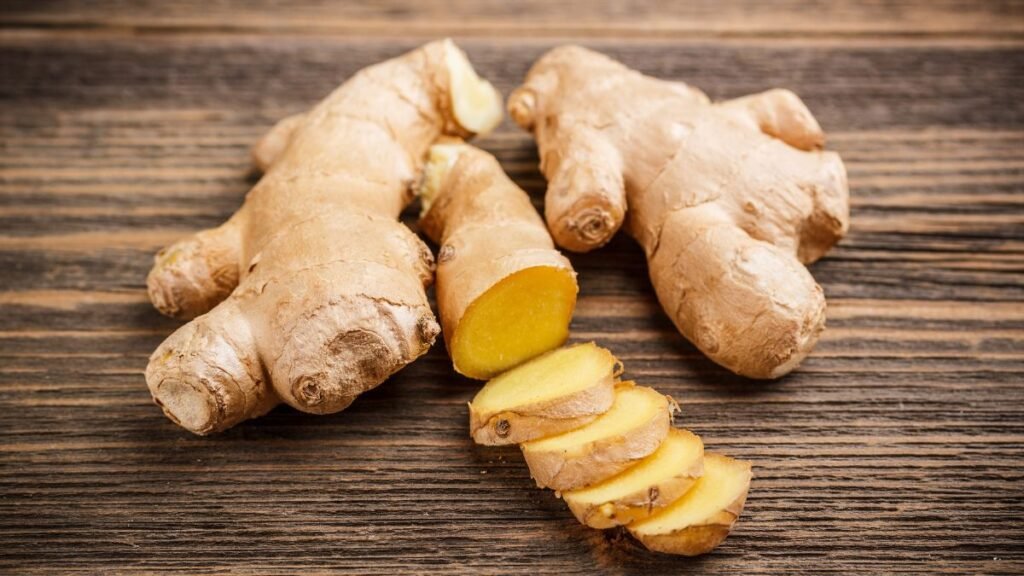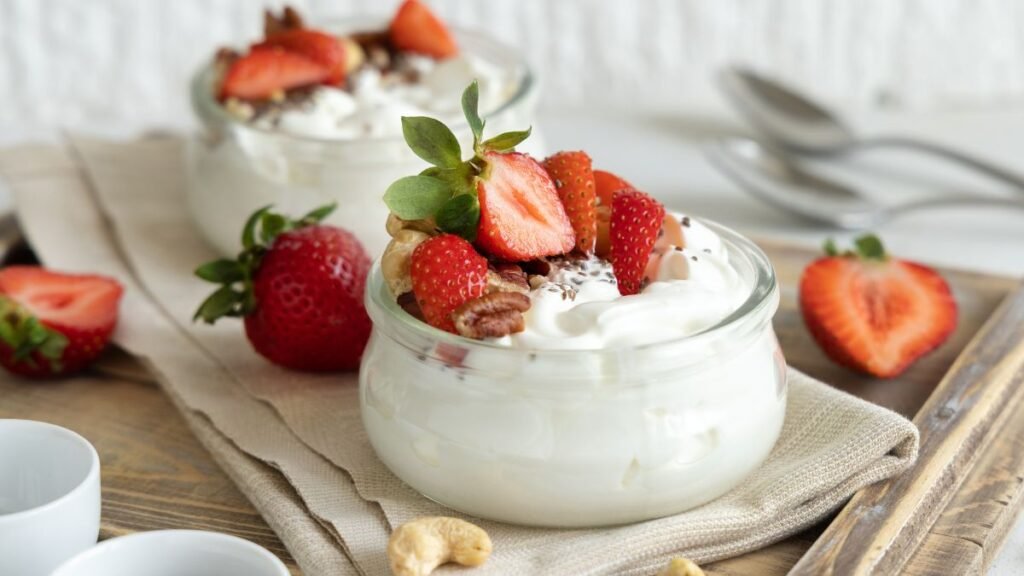Bloating can leave you feeling uncomfortable and sluggish, often making you feel and look puffy. Whether caused by poor digestion, water retention, or an excess of gas, bloating can affect anyone.
However, the good news is that certain foods can help reduce bloating and give you a flatter belly. Here are the top 7 anti-bloating foods you can incorporate into your diet for relief and overall digestive health.
Anti-Bloating Foods For A Flatter Belly
1. Cucumbers
Cucumbers are incredibly hydrating, containing 95% water, which helps reduce bloating by flushing out excess fluids and sodium from your system.
They also contain quercetin, a flavonoid known for its anti-inflammatory properties, helping soothe digestive discomfort. The water content not only keeps you hydrated but also aids digestion by promoting smooth bowel movements.
2. Ginger

Ginger has been a popular natural remedy for digestive issues for centuries. It contains compounds like gingerol that help stimulate the digestive system and reduce gas formation, making it an excellent anti-bloating food.
Consuming ginger tea or adding fresh ginger to your meals can ease bloating by speeding up the emptying of the stomach.
3. Pineapple
This tropical fruit contains bromelain, an enzyme that aids protein digestion, reducing the chances of bloating and gas.
Pineapple is also rich in fiber and water content, both of which support digestive health and reduce the discomfort of bloating. Enjoy pineapple as a snack, or add it to smoothies to reap its de-bloating benefits.
4. Yogurt

Yogurt, especially those rich in live and active cultures (probiotics), plays a key role in maintaining gut health.
Probiotics increase the good bacteria in your digestive tract, helping prevent bloating caused by gas or indigestion. Look for unsweetened, plain Greek yogurt to avoid added sugars, which can contribute to bloating.
5. Bananas
Bananas are rich in potassium, an essential mineral that helps regulate sodium levels in your body. Sodium can cause water retention, leading to bloating.
Eating potassium-rich foods like bananas helps flush out excess sodium, alleviating water retention. Additionally, bananas contain soluble fiber, which aids digestion and prevents constipation—a common cause of bloating.
6. Asparagus

Asparagus is a natural diuretic, which means it helps flush out excess water from your body, reducing water retention and bloating.
It also contains prebiotics, which support the growth of healthy bacteria in your gut. Prebiotics help prevent bloating by improving digestion and reducing gas production.
7. Peppermint
Peppermint has soothing effects on the digestive system, particularly in cases of bloating and gas. The menthol in peppermint can relax the muscles of the gastrointestinal tract, reducing gas build-up and promoting smoother digestion. Peppermint tea is one of the easiest and most effective ways to consume this anti-bloating food.
Why Do These Foods Help With Bloating?
Bloating often results from a combination of factors such as gas build-up, poor digestion, and water retention. The foods listed above work because they target these issues directly.
Many of these foods are rich in water and potassium, which help balance the body’s fluids and prevent water retention. Others, like yogurt and ginger, support digestion by either increasing beneficial gut bacteria or stimulating digestive enzymes.
How To Incorporate These Foods Into Your Diet
Incorporating anti-bloating foods into your daily diet can be easy and delicious. Here are some simple tips:
- Add cucumber slices to your water or enjoy them in a salad.
- Snack on bananas or blend them into smoothies for a bloat-reducing treat.
- Include ginger in your cooking or enjoy it as a tea.
- Add fresh pineapple chunks to yogurt for a de-bloating, probiotic-packed breakfast.
- Enjoy peppermint tea after meals to help ease digestion and prevent bloating.
Conclusion
Bloating is a common and uncomfortable problem, but it can often be managed by making smart dietary choices. Incorporating anti-bloating foods such as cucumbers, ginger, pineapple, and yogurt into your diet can help you achieve a flatter belly while also improving overall digestive health.
By balancing your diet with high-water and high-fiber foods and avoiding bloating triggers, you can significantly reduce discomfort and improve your quality of life.
FAQs
1. Can bloating be caused by dehydration?
Yes, dehydration can lead to water retention, which may cause bloating. Staying hydrated helps flush out excess sodium and prevents this discomfort.
2. How does ginger help with bloating?
Ginger contains compounds that stimulate digestion, reducing gas and easing bloating. It’s especially effective when consumed as a tea.
3. Are bananas good for reducing bloating?
Yes, bananas are rich in potassium, which helps balance sodium levels and reduce water retention, easing bloating.
4. How long does it take for bloating to subside?
Depending on the cause, bloating can subside within a few hours or days. Consistently consuming anti-bloating foods can provide faster relief.
5. Can yogurt help reduce bloating?
Yes, probiotic-rich yogurt improves gut health by balancing gut bacteria, which can reduce bloating and digestive discomfort.
References
- Eat This, Not That: 15 Foods to Reduce Bloating and Help De-Puff(Eat This Not That)
- National Center for Health Care: 14 Foods That Help With Bloating(NCHC)
- The Nutrition Insider: Foods That Reduce Bloating(NCHC)
- Healthline: 20 Foods That Help Ease Bloating(Eat This Not That)



